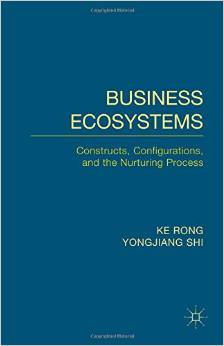
A new book on the business ecosystem theory has been published by Palgrave Macmillan recently, which was co-authored by Dr.Ke Rong from the business school and Dr.Yongjiang Shi from University of Cambridge. This book systematically deconstructs a business ecosystem and explores the way to nurture a business ecosystem, by learning from rich cases in a global context. This book is also endorsed by Dr.James Moore as below, who originated the business ecosystem concept in 1993 and authored the most cited business ecosystem book ‘The death of competition: leadership and strategy in the age of business ecosystems’ in 1996.
The new book title is:
‘Business Ecosystems: Constructs, Configurations, and the Nurturing Process’
Authored by Ke Rong (Bournemouth University) & Yongjiang Shi (University of Cambridge)
Abstract:
In the past 20 years, the business ecosystem theory has captured the attention and fired the imagination of many involved in industrial innovation and manufacturing transformation. However, the concepts, boundaries and theoretical systems are still not comprehensively explored and structured. In order to tackle how a company can nurture its business ecosystem for future sustainable competitive advantages, Business Ecosystems provides very detailed and convincing case studies demonstrating the dramatic transformations of the mobile computing industry and the significant impact from its business ecosystem. This book systematically examines business ecosystems in an emerging industry context while fundamentally exploring and identifying four essential areas of business ecosystems: the business ecosystems’ key constructive elements, their typical patterns of element configurations, the five-phase process of their life cycle, and the nurturing strategies and processes from a company perspective. The book not only contributes to different disciplines but also provides insights to practitioners who can be inspired to develop their business ecosystems.
The book’s link:
http://www.amazon.com/Business-Ecosystems-Constructs-Configurations-Nurturing/dp/1137405902/ref=sr_1_1?ie=UTF8&qid=1422678158&sr=8-1&keywords=business+ecosystem
http://www.palgrave.com/page/detail/business-ecosystems/?k=9781137405906&loc=us
Endorsement from Dr.James Moore
Business Ecosystems by Ke Rong and Yongjiang Shi is a landmark in the field of business strategy. As someone who has lived my life with managers developing business ecosystems, I can attest that the authors “get” the essence and the power of the approach.
Business ecosystems are the dominant design for strategy making in technology-based businesses today. In practice, business ecosystems are everywhere: producer-centered, customer-centered, people, technology and product centered. Business ecosystems nest within others. Business ecosystems are themselves complexly related.
The authors provide a model for studying business ecosystems in their richness. They review two decades of academic research in order to clarify the construct. The authors show that business ecosystems dynamics reflect the principles of general systems theory, agent-based-modeling and the mathematics of networks. Helpfully, the authors demonstrate this by exploring the logical extension of leading systems-based concepts of advanced manufacturing into the domain of business ecosystems.
They demonstrate that the business ecosystem field of application is at a higher logical type than other theories of strategy–that is, business ecosystems ideas guide leaders to intervene to continually reshape industry structure, and to do so simultaneously within multiple related industries. Leaders collaborate to establish ecosystem-wide shared values and visions that in turn support collective conduct and result in shared gains in performance.
Business ecosystems are notoriously difficult for outsiders to study. The guiding visions of business ecosystems are inherently cross-company and cross-industry, are usually held secret by members, and peer far into the future.
Ke Rong was able to gain access to top leaders in three related very-large-scale global business ecosystems, originating on three different continents and in three forms of capitalism, all contributing to one of the most dynamic fields of world business. The result is a narrative of great interest to executives as well as researchers.
By sketching the story in its broadest and most complete form, there is much for the rest of us to chew on, refine and question. The breakthrough is that we can do so as a community, with this work and its methodology as a foundation.
James F. Moore, Concord, Massachusetts, December, 2014


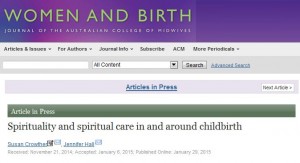
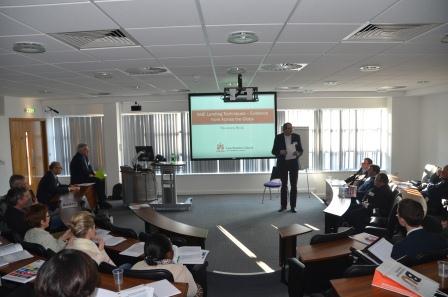




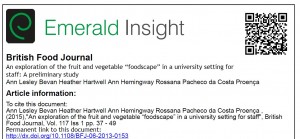


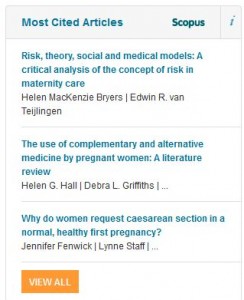













 SPROUT: From Sustainable Research to Sustainable Research Lives
SPROUT: From Sustainable Research to Sustainable Research Lives BRIAN upgrade and new look
BRIAN upgrade and new look Seeing the fruits of your labour in Bangladesh
Seeing the fruits of your labour in Bangladesh Exploring Embodied Research: Body Map Storytelling Workshop & Research Seminar
Exploring Embodied Research: Body Map Storytelling Workshop & Research Seminar Marking a Milestone: The Swash Channel Wreck Book Launch
Marking a Milestone: The Swash Channel Wreck Book Launch ECR Funding Open Call: Research Culture & Community Grant – Application Deadline Friday 12 December
ECR Funding Open Call: Research Culture & Community Grant – Application Deadline Friday 12 December MSCA Postdoctoral Fellowships 2025 Call
MSCA Postdoctoral Fellowships 2025 Call ERC Advanced Grant 2025 Webinar
ERC Advanced Grant 2025 Webinar Update on UKRO services
Update on UKRO services European research project exploring use of ‘virtual twins’ to better manage metabolic associated fatty liver disease
European research project exploring use of ‘virtual twins’ to better manage metabolic associated fatty liver disease